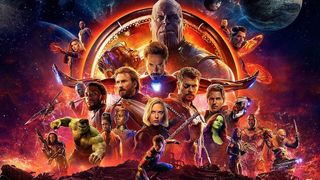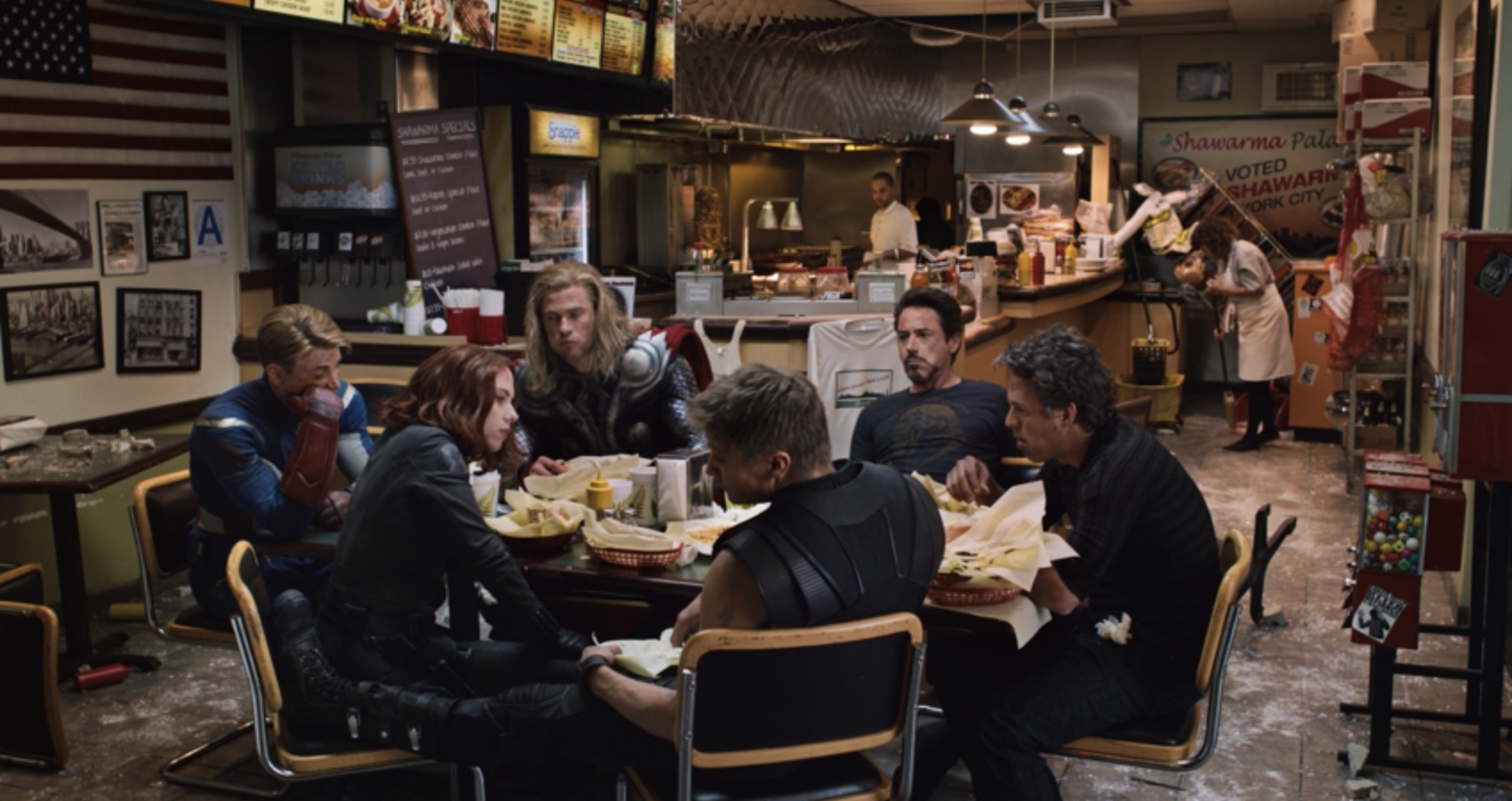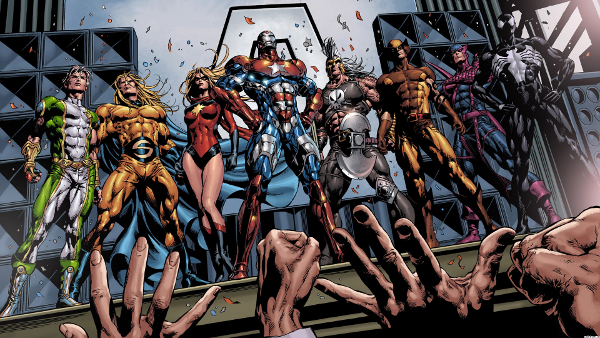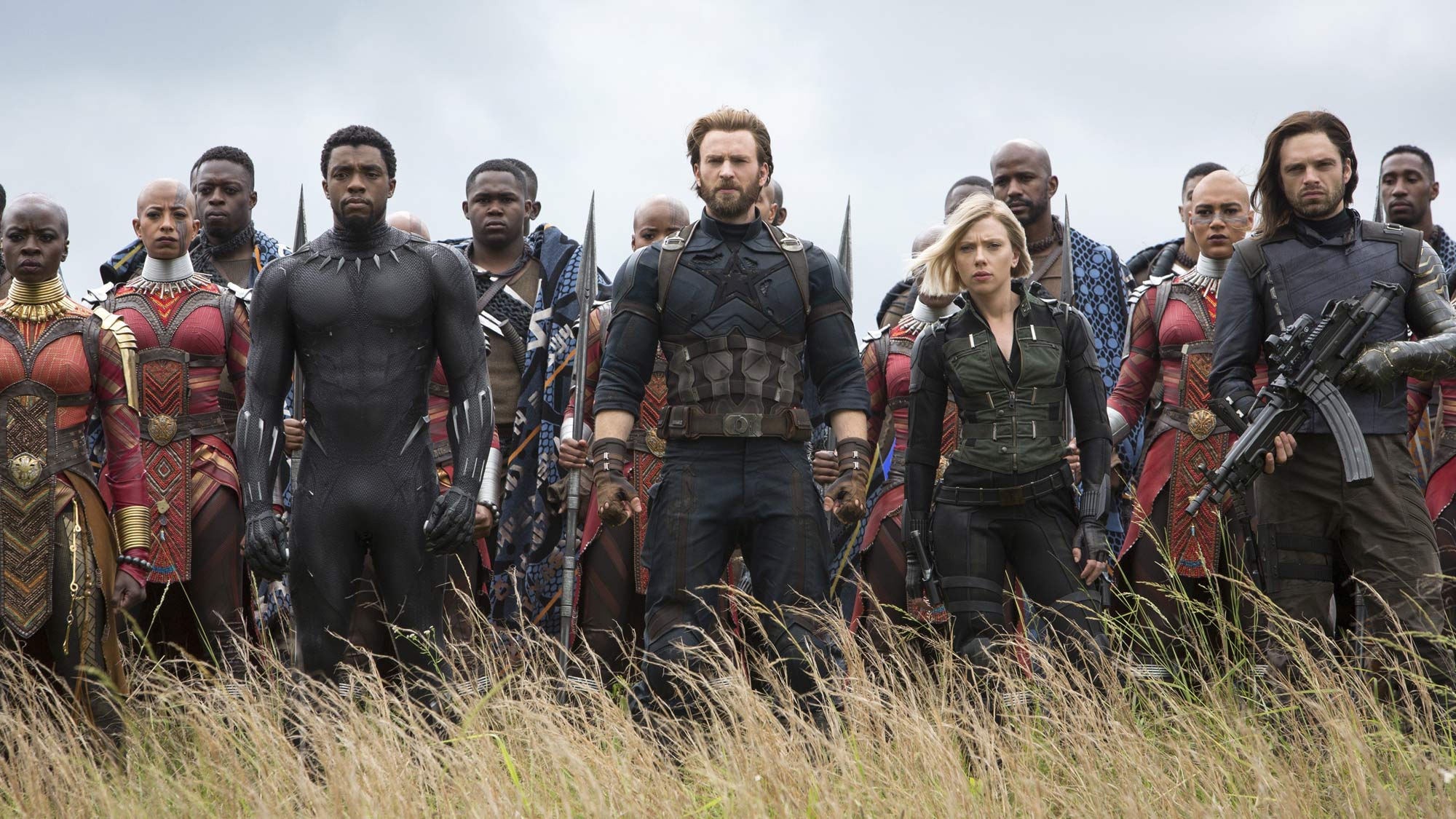It’s time to kill the MCU
It's fourth dimension to kill the MCU

The Curiosity Cinematic Universe has had a good run. Between 26 films, 16 TV shows and any number of smaller spinoffs, the MCU has dominated both large and small screens e'er since Iron Human debuted back in 2008. This project singlehandedly rewrote the rules for Hollywood blockbusters, and took superheroes from niche to mainstream.
In brusque, the MCU is on top of the globe. And that'due south why it should quit now, while it's ahead. (For an alternating indicate of view, meet why The MCU should non be killed.)
While there'south no denying that the Curiosity Cinematic Universe has had profound effects on both the movie business and popular culture in general, at that place's likewise no denying that the project has become unwieldy and aimless. The MCU delighted fans by staying true to the Curiosity comics formula. But in so doing, information technology as well managed to recreate everything wrong with Marvel comic books — and in approximately a fifth of the time.
What makes the MCU work

Before nosotros dive in whatever further, I should explain that I have nix against the MCU. In fact, I felt heavily invested in it for a time. I thought that Phase 1 of the MCU comprised some of the most accurate onscreen depictions of comic book superheroes I'd always seen, and that The Avengers (2012) was unlike anything I'd seen on a large screen earlier. I fifty-fifty dedicated more than 250 hours of my ain costless time to watching the MCU TV shows, which yous absolutely should non do.
I followed the MCU films up until Avengers: Endgame, which was an ambitious-simply-flawed conclusion to an ambitious-but-flawed experiment.
Without rehashing the whole MCU project from scratch, information technology's non too hard to run across why it's worked well and so far. (And if you haven't seen them all yet, then here's how to sentry the Curiosity movies in order.)
Curiosity Studios matched beloved characters with charismatic actors, then adapted fan-favorite comic volume stories, making smart adjustments to fit the feature film format. Granted, other superhero movies had done this before. What set the MCU apart was its neat eye for continuity and crossovers, but like the comics that inspired it.
The just problem is that the MCU accomplished its goal right out of the gate. Iron Man, The Incredible Hulk, Captain America and Thor were all entertaining (and sometimes legitimately excellent) films, and ready the stage perfectly for a big crossover spectacle. The Avengers delivered almost flawlessly on that premise, delivering well-written banter, unexpected plot twists and memorable activeness set pieces from commencement to cease.
However, as any comic volume fan can tell you lot, big crossover events have diminishing returns. The trouble with the MCU is that what began as a moonshot squad-up project became something much more formulaic and predictable over time. Call up about how many boosted origin stories we've had to sit down through since The Avengers, and how many sequels wound upward spinning their wheels until the next big crossover motion-picture show.
Think, too, nearly how many of these films actually did something clever or unexpected with the superhero formula. It's not many. Even the movies that tried, such equally Eternals, didn't necessarily pull it off well.
Worse still: the actual movies and shows became nigh totally ancillary to keeping people interested in the MCU. Instead, the whole project has become a race to come across who can identify the most references and approximate the next potential plot points every bit quickly as possible. (Bonus points if you work for a major magazine, and can garner a lot of clicks from doing and so.) When the next MCU project debuts, go ahead and keep an center on how much coverage grapples with the motion-picture show or testify'southward themes and storytelling, and how much coverage points out Easter eggs or speculates on when the X-Men are going to show up. Information technology's a superficial mode to engage with the media we eat, simply it'due south what the MCU has trained us to do.
Inspired by Curiosity comics

However, I would argue that none of these bug is unique to the MCU. In fact, in seeking to recreate the benefits of Marvel comics, the films and shows (perhaps accidentally) recreated their detriments as well.
To give some context here: My introduction to the wide world of Marvel was through X-Men: The Blithe Series back in the early '90s. For five seasons, the testify wove a complex (for kids, anyhow) web of characters and relationships, occasionally bridging the gap betwixt the 10-Men and other heroes, such as Spider-Man, Dr. Strange and Ms. Curiosity. Subsequently I revisited the show in loftier schoolhouse, I was determined to read the comics firsthand and continue the story.
The only trouble was that later a trip to my local comic book shop, I had no idea where to start. Stories in Marvel comics aren't self-contained adventures that wrap up inside a few years, like the 10-Men drawing. Instead, Marvel continuity ran all the way back to the very start issue of Fantastic Four in 1961. (And, truthfully, some of the stuff before that — but not all of it!) The canon comprised thousands upon thousands of stories, characters and events, some of which contradicted each other, and most of which simply weren't accessible anymore.
Notwithstanding, I did the best I could, consulting proto-wikis and bulletin boards, and learning where the current storylines started. I eventually caught upwardly enough with the X-Men, the Avengers, and a few other heroes to understand the basics of what was going on. Then, Avengers: Disassembled happened, and I learned how Curiosity handles big crossover events.
Without going into tremendous detail, Marvel has yearly(ish) crossover events, which shake upwardly the condition quo in the Curiosity Universe and normally end with a huge boxing against some kind of cataclysmic threat. Avengers: Disassembled was the outset one I read, and I apace realized that merely reading the monthly Avengers comic wasn't enough. To get the full story, I also had to read (and, of grade, buy) monthly issues of Atomic number 26 Man, Captain America, Thor, Fantastic Four and Spider-Human being. Information technology was a lot of extra information — and a lot of extra coin.
I followed this bicycle for a few years, throughout Firm of M, Civil War, Siege and Fear Itself. Some crossovers were better than others, simply each one of them involved a ton of backstory, a ton of side stories and a ton of follow-upward stories.
Eventually, I had a realization: The constant worldbuilding-upon-worldbuilding (at e'er-increasing expense) was never going to cease. I'd become incredibly invested in the story, but Marvel was never going to provide catharsis. If I wanted an ending, I'd simply have to pick a stopping point myself.
In other words, Marvel comics take spent 60 years creating a messy, labyrinthine, bulletproof mythos, with a steep onboarding cost (in terms of both time and money), and no easy style to get out. The MCU has done the aforementioned, but this time effectually, the process took only a decade.
As I write this, the MCU is on rails to release nine projects in 2021: 4 movies and 5 TV series. Cheque out our Disney Plus Day recap for more info. While viewers tin can admittedly pick and cull which ones they want to watch, you'll probably need to see them all in order to become the "full" story. The question is: What's the bespeak of getting the full story? The MCU seems poised to grow and abound and grow, but like the comics, until keeping rails of its tangled mythology volition exist impossible, salve for a few hardcore continuity chroniclers.
Cease with a bang

What, then, is the alternative? To my heed, it's elementary: End the MCU project before it gets likewise tangled and unmanageable. Monthly comics are too far gone for that solution; we're stuck with unresolved stories and diminishing returns on crossovers forever. But shared-universe movies are new plenty that the MCU could conceivably still finish things on a high note.
I don't know exactly how the MCU could pull this off. I'm not a director, or a producer, or a screenwriter. But I do know that the MCU lost me for the same reason that Marvel comics lost me, after enjoying both for quite a few years. Monthly comics wait readers to come up and go over time, and maybe the MCU is banking on that strategy also. Simply building up to a single, definitive ending would exist both more satisfying and more daring. We already know that superhero stories tin can substantially go along forever; attempting to end i for practiced is a tougher challenge.
I'll cease with a few thoughts on Avengers: Endgame. As I stated, I didn't have strong feelings nigh the movie 1 fashion or another. Only a few months afterwards, I institute myself rewatching episodes of Arrested Evolution and Community: two sitcoms that Endgame directors Joe and Anthony Russo worked on before transitioning over to the MCU.
I was absolutely floored by how clever, creative and delightful these shows felt. The Russos pushed the traditional sitcom format to its breaking signal, relying on asynchronous storytelling, continuity-heavy gags and some genuinely disconcerting field of study matter. So I thought back to Endgame: overlong, overly serious and just a trivial bit full of itself.
The MCU started strong. All that'south left at present is to let it finish strong.
- Next: No, it's not time to kill the MCU — it's a spectacular mess
Source: https://www.tomsguide.com/opinion/time-to-kill-mcu
Posted by: hisleoffet1962.blogspot.com


0 Response to "It’s time to kill the MCU"
Post a Comment